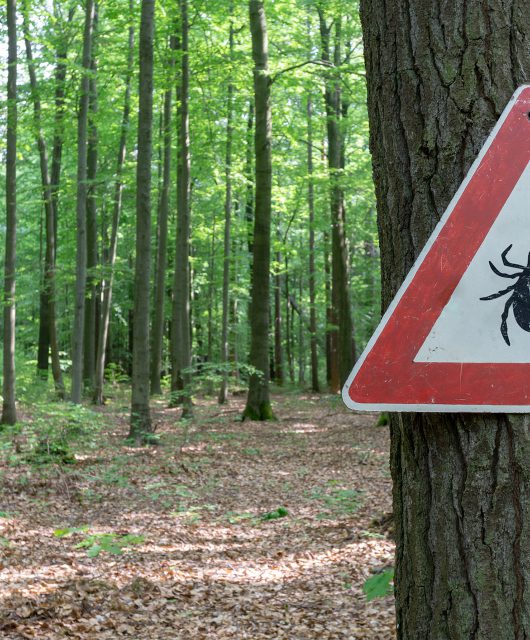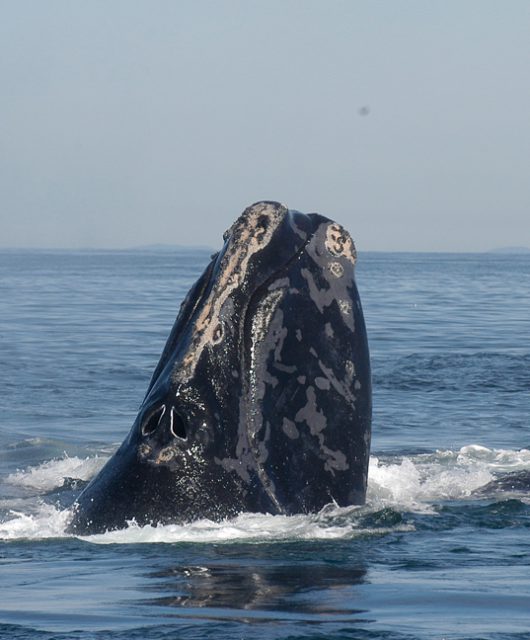It’s no surprise that whales are highly intelligent creatures.
With their advanced communication skills, emotional depth and impressive ability to learn, these ocean giants have long fascinated scientists.
From Orcas off British Columbia’s coast to Humpbacks cruising through the Gulf of St. Lawrence, whales are not just majestic – they’re mind-blowingly smart. They use tools, master hunting techniques, express emotion, sing songs that evolve over time, and pass knowledge down through generations. So, just how smart are they? Let’s dive into five reasons why whales might just be the Einsteins of the ocean:
1. They Use Tools (Yes, really!)
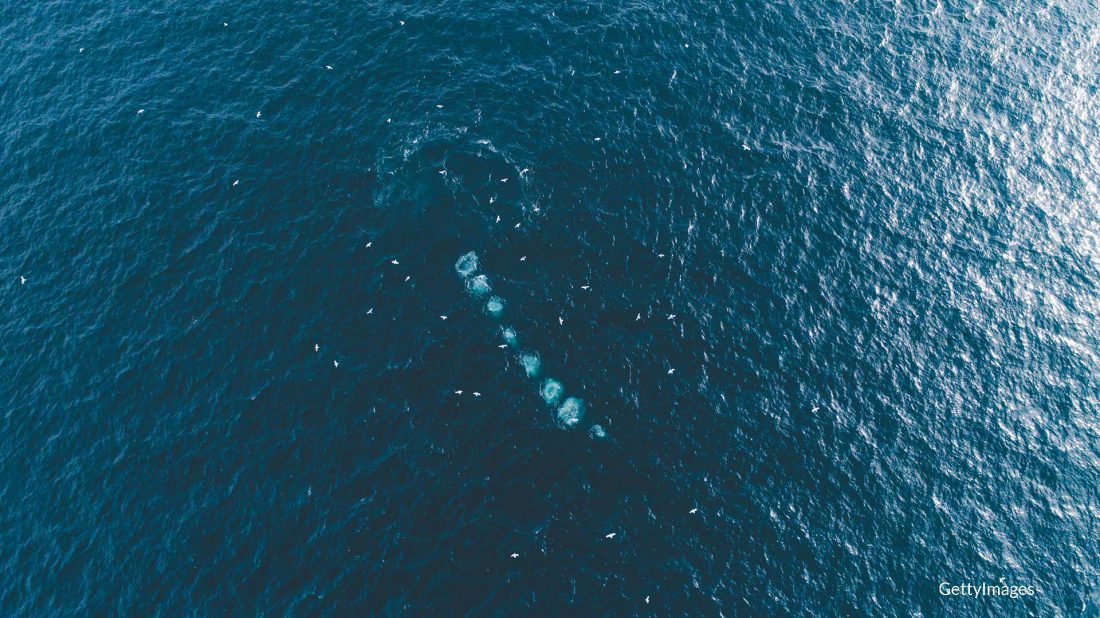
Tool use isn’t just limited to crows or Sea Otters in Canada. Humpback Whales have mastered a hunting technique called bubble-net feeding, which deserves its own spot in the animal innovation hall of fame.
Here’s how it works: whales dive below a school of krill, blow bubbles in a circular or spiral pattern to form an underwater “net” that encloses the prey. Bubble-net feeding isn’t instinctive, it’s a learned behaviour passed down through generations.
2. They’re Expert Communicators
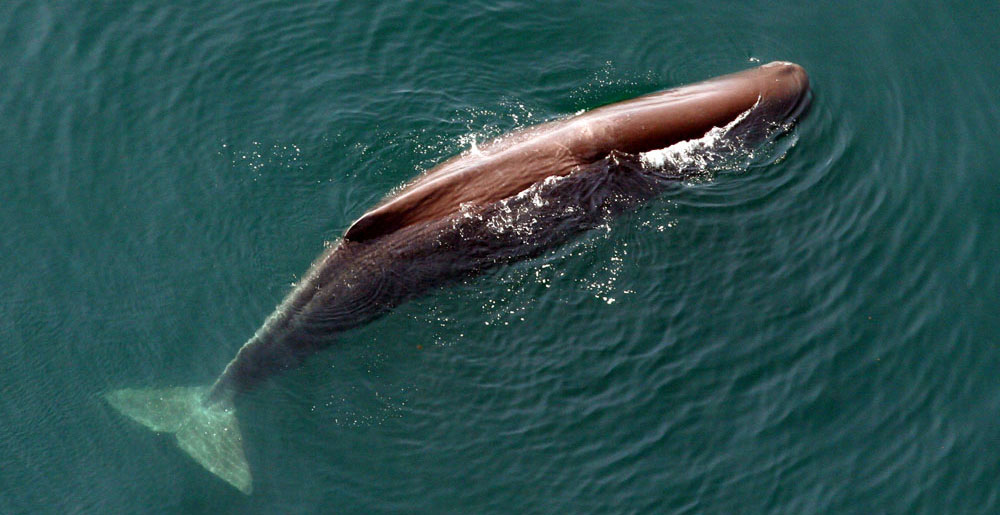
Whales are far from silent swimmers – they click, whistle and sing in ways that are surprisingly sophisticated. Baleen whales, like Humpback or Blue Whales, are known for producing long, patterned songs that can travel great distances. Toothed whales, like Orcas and Sperm Whales, communicate using a series of clicks and whistles. Individuals of some species can even be identified by their unique sounds!
Researchers have found that some Sperm Whale groups develop regional vocal styles – almost like dialects – especially when they live near one another.
3. They Live in Tight-Knit Groups

Many species of whales travel in family units called pods. There’s often a strong matriarchal leader and lots of social dynamics at play. These social structures help whales hunt cooperatively and teach their young. Fun fact: Orcas often stay with their mothers for life. Talk about strong bonds!
4. They Show Deep Emotion
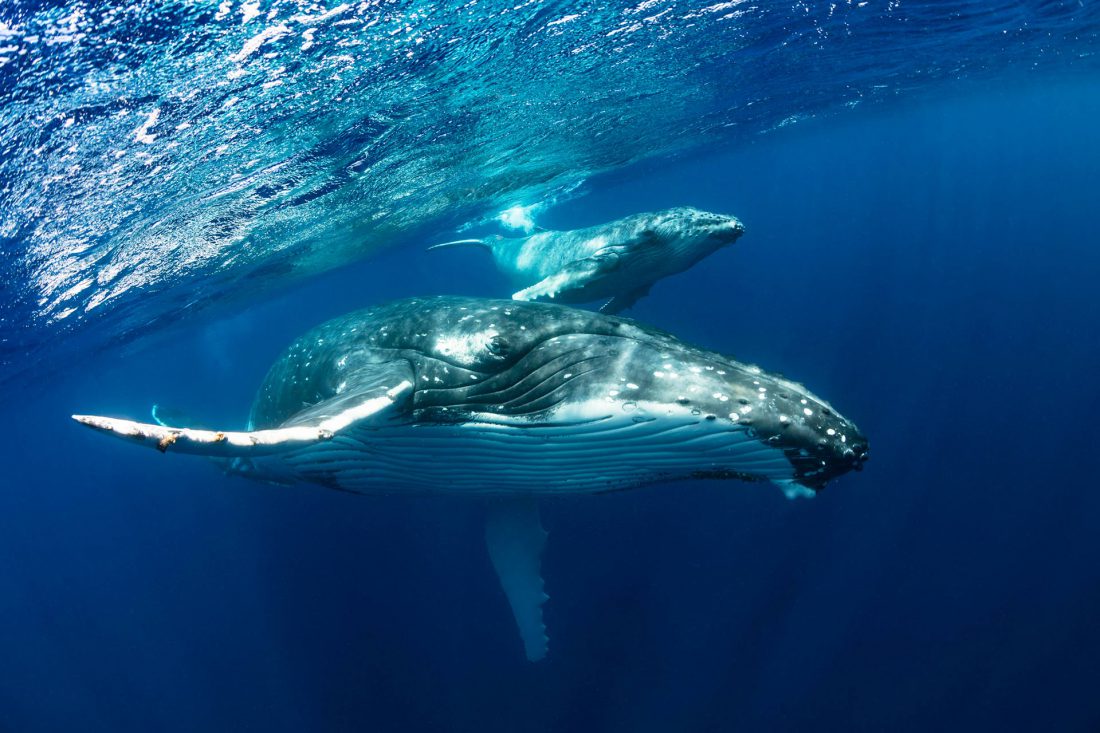
There are reports of Humpbacks protecting other whales and even seals, sea lions and porpoises from Orca attacks, often with no clear benefit to themselves. Some researchers believe this could be a sign of empathy, an extraordinary trait in the animal kingdom! Others believe Humpbacks are programmed to respond to the noise of Orca attacks – no matter the species – in case the Orcas are attacking a Humpback.
Grief is another powerful emotion seen in whales. Female whales have been observed carrying their deceased calves for days, even weeks. It’s heart-wrenching, and it shows us that intelligence in whales isn’t just about problem-solving, it’s about connection.
5. Larger Brain Size
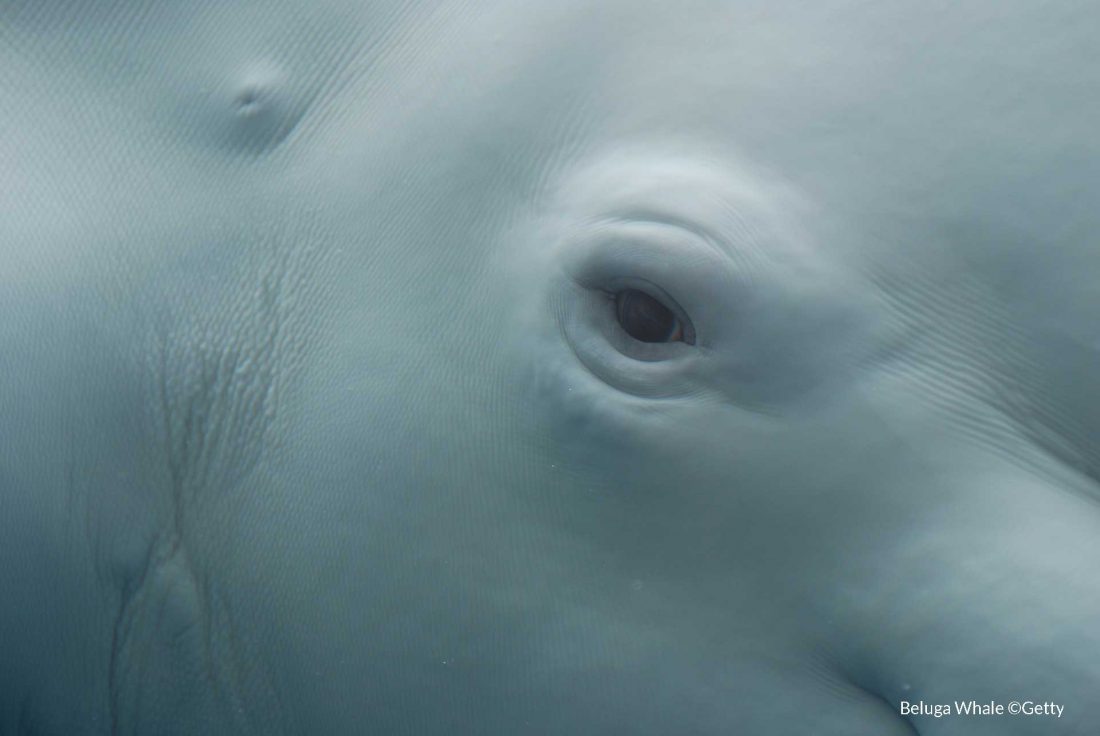
Brains don’t tell the whole story when it comes to intelligence, but whales sure make a strong case. Sperm Whales hold the title for the largest brain on the planet. Some cetaceans, like dolphins, have even more brain surface area than humans, which may contribute to their abilities in memory, reasoning, social behaviour and language.
So… Are Whales Canada’s Smartest Mammals?
Let’s just say this: they’re definitely in the running. As we continue to study and admire these ocean giants, one thing becomes crystal clear: whales aren’t just swimming through life – they’re thinking, feeling, learning – fighting to survive.


